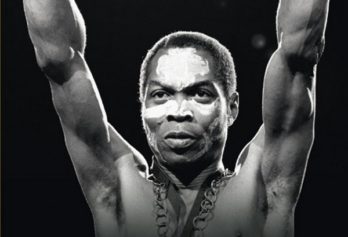In a typical encounter between a black African and a black American, the black African knows more about the black American’s world than the black American knows about the black African’s.
This has a lot to do with the fact that most Americans (white or black) know little about what happens outside of their country. But it’s also because the United States exports a massive amount of culture and imports very little. As a consequence, a person in, say, Singapore consumes his/her local culture along with the culture that Americans consume almost exclusively. The U.S. has become the universal—the rest, a puzzle of particulars.
When we talk about American cultural dominance, the discussion instinctively turns to brands like Nike, McDonald’s, and Coca-Cola, and the image industrial complex called Hollywood. But blacks in Africa and countries with large black populations cannot imagine any discussion of American cultural dominance that fails to mention black American music, the music of the world. It is heard everywhere and imitated by everyone.
At this moment, the most famous pop star on earth is a Korean who raps (Psy). Also at this moment, the most famous Seattle musician is a white man who raps (Macklemore).
And if you look at the top 10 grossing concert tours of all time, you will find that three were by a band that drew directly from the deep wells of black American blues and soul (the Rolling Stones) and two were by a woman who got her start singing bland black pop tunes (Madonna). The image of the world is a white face (Hollywood), but the voice of the world is black (Motown).


